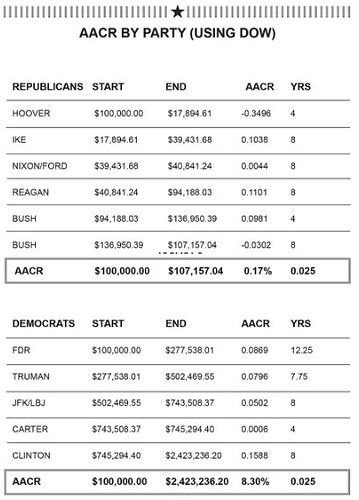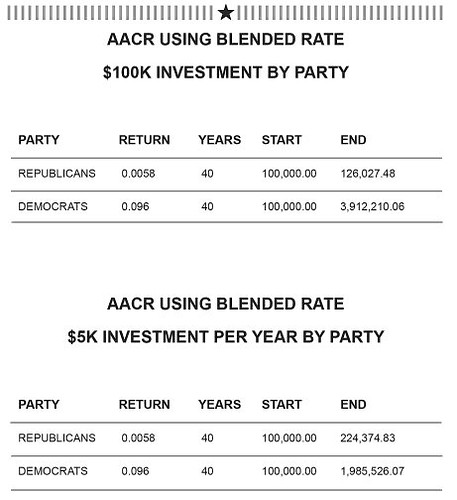Bush's Achievements
Ten things the president got right.
JAN 19, 2009, VOL. 14, NO. 17 BY FRED BARNES
The postmortems on the presidency of George W. Bush are all wrong. The liberal line is that Bush dangerously weakened America's position in the world and rushed to the aid of the rich and powerful as income inequality worsened. That is twaddle. Conservatives--okay, not all of them--have only been a little bit kinder. They give Bush credit for the surge that saved Iraq, but not for much else.
He deserves better. His presidency was far more successful than not. And there's an aspect of his decision-making that merits special recognition: his courage. Time and time again, Bush did what other presidents, even Ronald Reagan, would not have done and for which he was vilified and abused. That--defiantly doing the right thing--is what distinguished his presidency.
Bush had ten great achievements (and maybe more) in his eight years in the White House, starting with his decision in 2001 to jettison the Kyoto global warming treaty so loved by Al Gore, the environmental lobby, elite opinion, and Europeans. The treaty was a disaster, with India and China exempted and economic decline the certain result. Everyone knew it. But only Bush said so and acted accordingly.
He stood athwart mounting global warming hysteria and yelled, "Stop!" He slowed the movement toward a policy blunder of worldwide impact, providing time for facts to catch up with the dubious claims of alarmists. Thanks in part to Bush, the supposed consensus of scientists on global warming has now collapsed. The skeptics, who point to global cooling over the past decade, are now heard loud and clear. And a rational approach to the theory of manmade global warming is possible.
Second, enhanced interrogation of terrorists. Along with use of secret prisons and wireless eavesdropping, this saved American lives. How many thousands of lives? We'll never know. But, as Charles Krauthammer said recently, "Those are precisely the elements which kept us safe and which have prevented a second attack."
Crucial intelligence was obtained from captured al Qaeda leaders, including 9/11 mastermind Khalid Sheikh Mohammed, with the help of waterboarding. Whether this tactic--it creates a drowning sensation--is torture is a matter of debate. John McCain and many Democrats say it is. Bush and Vice President Cheney insist it isn't. In any case, it was necessary. Lincoln once made a similar point in defending his suspension of habeas corpus in direct defiance of Chief Justice Roger Taney. "Are all the laws but one to go unexecuted, and the government itself go to pieces, lest that one be violated?" Lincoln asked. Bush understood the answer in wartime had to be no.
Bush's third achievement was the rebuilding of presidential authority, badly degraded in the era of Vietnam, Watergate, and Bill Clinton. He didn't hesitate to conduct wireless surveillance of terrorists without getting a federal judge's okay. He decided on his own how to treat terrorists and where they should be imprisoned. Those were legitimate decisions for which the president, as commander in chief, should feel no need to apologize.
Defending, all the way to the Supreme Court, Cheney's refusal to disclose to Congress the names of people he'd consulted on energy policy was also enormously important. Democratic congressman Henry Waxman demanded the names, but the Court upheld Cheney, 7-2. Last week, Cheney defended his refusal, waspishly noting that Waxman "doesn't call me up and tell me who he's meeting with."
Achievement number four was Bush's unswerving support for Israel. Reagan was once deemed Israel's best friend in the White House. Now Bush can claim the title. He ostracized Yasser Arafat as an impediment to peace in the Middle East. This infuriated the anti-Israel forces in Europe, the Third World, and the United Nations, and was criticized by champions of the "peace process" here at home. Bush was right.
He was clever in his support. Bush announced that Ariel Sharon should withdraw the tanks he'd sent into the West Bank in 2002, then exerted zero pressure on Sharon to do so. And he backed the wall along Israel's eastern border without endorsing it as an official boundary, while knowing full well that it might eventually become exactly that. He was a loyal friend.
His fifth success was No Child Left Behind (NCLB), the education reform bill cosponsored by America's most prominent liberal Democratic senator Edward Kennedy. The teachers' unions, school boards, the education establishment, conservatives adamant about local control of schools--they all loathed the measure and still do. It requires two things they ardently oppose, mandatory testing and accountability.
Kennedy later turned against NCLB, saying Bush is shortchanging the program. In truth, federal education spending is at record levels. Another complaint is that it forces teachers to "teach to the test." The tests are on math and reading. They are tests worth teaching to.
Sixth, Bush declared in his second inaugural address in 2005 that American foreign policy (at least his) would henceforth focus on promoting democracy around the world. This put him squarely in the Reagan camp, but he was lambasted as unrealistic, impractical, and a tool of wily neoconservatives. The new policy gave Bush credibility in pressing for democracy in the former Soviet republics and Middle East and in zinging various dictators and kleptocrats. It will do the same for President Obama, if he's wise enough to hang onto it.
The seventh achievement is the Medicare prescription drug benefit, enacted in 2003. It's not only wildly popular; it has cost less than expected by triggering competition among drug companies. Conservatives have deep reservations about the program. But they shouldn't have been surprised. Bush advocated the drug benefit in the 2000 campaign. And if he hadn't acted, Democrats would have, with a much less attractive result.
Then there were John Roberts and Sam Alito. In putting them on the Supreme Court and naming Roberts chief justice, Bush achieved what had eluded Richard Nixon, Reagan, and his own father. Roberts and Alito made the Court indisputably more conservative. And the good news is Roberts, 53, and Alito, 58, should be justices for decades to come.
Bush's ninth achievement has been widely ignored. He strengthened relations with east Asian democracies (Japan, South Korea, Australia) without causing a rift with China. On top of that, he forged strong ties with India. An important factor was their common enemy, Islamic jihadists. After 9/11, Bush made the most of this, and Indian leaders were receptive. His state dinner for Indian prime minister Manmohan Singh in 2006 was a lovefest.
Finally, a no-brainer: the surge. Bush prompted nearly unanimous disapproval in January 2007 when he announced he was sending more troops to Iraq and adopting a new counterinsurgency strategy. His opponents initially included the State Department, the Pentagon, most of Congress, the media, the foreign policy establishment, indeed the whole world. This makes his decision a profile in courage. Best of all, the surge worked. Iraq is now a fragile but functioning democracy.
How does Bush rank as a president? We won't know until he's judged from the perspective of two or three decades. Hindsight forced a sharp upgrading of the presidencies of Harry Truman and Dwight Eisenhower. Given his achievements, it may have the same effect for Bush.







